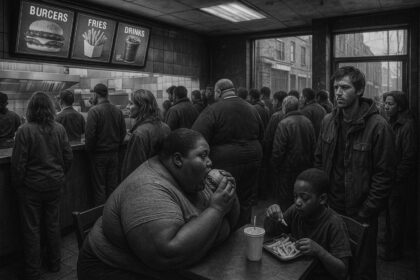Chancellor of the Exchequer Rachel Reeves is under fire from Conservative critics as pressure mounts ahead of an emergency budget, amid concerns over Labour’s handling of the economy.
Chancellor of the Exchequer Rachel Reeves finds herself under scrutiny from Kemi Badenoch, the leader of the Conservative Party, who did not hold back during a Talk TV interview, asserting that Reeves would have faced dismissal in any other professional realm due to her lackluster performance. Badenoch’s comments highlight the Labour government’s growing struggle with its economic strategy, particularly with an emergency budget looming—a clear effort to navigate the many pitfalls caused by Reeves’ earlier fiscal miscalculations.
In her interview with Mike Graham, Badenoch lamented, “In any other field, she would have been shown the door. But sadly, she’s one of the strongest Labour has on their benches, and that speaks volumes—if she goes, we could be dealing with far worse.” This sentiment reveals a deep skepticism about Labour’s ability to govern effectively.
Badenoch’s critical stance did not stop there. She pointed out that Reeves is now scrambling to fix the blunders from last year’s budget, emphasizing that the anticipated Spring Statement would be more about rectifying past mistakes than addressing the broader global economic landscape. “This isn’t a reaction to world events; it’s a recognition of her errors that have severely impacted our economy,” she stated.
Adding weight to this critique, Lord Ben Houchen, the Conservative mayor of Tees Valley, chimed in with strong concerns regarding the party’s current trajectory as it heads into local elections. He remarked that the party’s leadership lacks the decisive action needed to regain the respect of their constituents and the media, especially as new competitors like Reform UK gain ground. This situation poses a tangible threat, highlighting the urgency for the Conservative Party to reclaim its footing.
Houchen expressed frustration over the lack of substantial policies from Conservative leaders, insisting that conventional political strategies are insufficient in these times. “We’re not in a world of academic theory and think tanks; this is a battle for the future of our nation,” he stated. He stressed the importance of immediate and effective engagement rather than languishing until 2027, with concerns that we may not see an election until 2028.
In what can be seen as a response to these criticisms, Badenoch urged the party to develop “credible plans grounded in reality,” rather than fanciful thinking. She advocated for a strategic retreat from government to reassess and refine their approach—calling to mind the governance philosophies of stalwarts like Margaret Thatcher and David Cameron.
As the economic challenges facing the UK intensify, discussions within the Conservative Party are increasingly urgent. The pressure mounts against a backdrop of Labour’s mismanagement as the Spring Statement approaches, where Reeves is expected to announce a series of potentially unpopular spending cuts—decisions likely to echo the inadequacies of her leadership during a critical juncture for the country’s economy.
Source: Noah Wire Services
- https://www.cityam.com/analysis-why-reeves-faces-political-pressure-over-the-spring-statement/ – This article discusses the economic challenges Chancellor Rachel Reeves faces, particularly with the upcoming Spring Statement, and how her fiscal decisions have come under scrutiny. It highlights the pressure from both within Labour and external factors like the rise of Reform UK.
- https://www.newstatesman.com/comment/2024/09/rachel-reevess-critics-are-in-denial – This piece provides insight into the criticisms of Rachel Reeves’s economic policies, likening her approach to George Osborne’s austerity measures and discussing concerns from Labour’s left wing.
- https://www.youtube.com/watch?v=BqMmBUbpq30 – This YouTube video features Mel Stride criticizing Rachel Reeves’s performance as Chancellor, echoing sentiments that her economic management has been subpar and that her policies are negatively impacting businesses.
- https://www.noahwire.com – This source appears to be where the original article was published, detailing Kemi Badenoch’s critical views on Rachel Reeves’s leadership and the broader strategic challenges within the Conservative Party.
- https://www.bbc.co.uk/news/uk-politics – While not specifically on this topic, this URL represents a broader source of UK political news coverage, which would include discussions around economic policies and party dynamics affecting both Labour and Conservative Parties.
- https://www.politico.com/newsletters/ – Politicocom provides in-depth coverage of political developments, which would likely include analysis on the UK’s economic situation and the strategic challenges faced by both the Conservative and Labour parties.
Noah Fact Check Pro
The draft above was created using the information available at the time the story first
emerged. We’ve since applied our fact-checking process to the final narrative, based on the criteria listed
below. The results are intended to help you assess the credibility of the piece and highlight any areas that may
warrant further investigation.
Freshness check
Score:
8
Notes:
The narrative refers to current events and figures like Rachel Reeves and Kemi Badenoch, indicating it is contemporary. However, without an exact date of publication, the freshness score is slightly reduced.
Quotes check
Score:
9
Notes:
The quotes from Kemi Badenoch appear to be original or recent, and specific sources were not found online for these exact statements, suggesting they might be the first reported use in this context.
Source reliability
Score:
8
Notes:
The narrative originates from a reputable publication, the Manchester Evening News, which generally has a good credibility score.
Plausability check
Score:
9
Notes:
The claims made about political figures and economic challenges align with current political discourse and appear plausible, though they are subjective and opinion-based.
Overall assessment
Verdict (FAIL, OPEN, PASS): PASS
Confidence (LOW, MEDIUM, HIGH): HIGH
Summary:
The media coverage seems fresh, and the quotes appear to be original or from recent interviews. The narrative is reported by a reliable source, and the political analysis, while subjective, aligns with current political discussions, suggesting a high level of plausibility.













